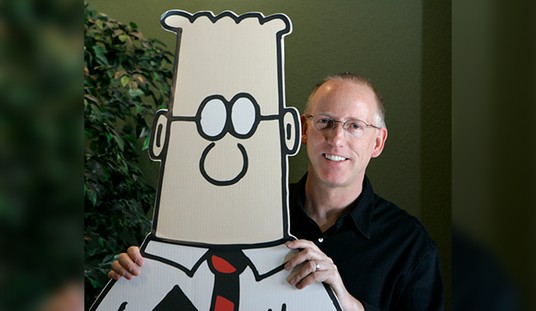Gonna be a lot of blood on the floor when the next nominee is crowned.
Tucked in near the end of the 97-page report, formally known as The Growth and Opportunity Project, are less than four pages that amount to a political bombshell: the five-member panel urges halving the number of presidential primary debates in 2016 from 2012, creating a regional primary cluster after the traditional early states and holding primaries rather than caucuses or conventions.
Each of those steps would benefit a deep-pocketed candidate in the mold of Mitt Romney. That is, someone who doesn’t need the benefit of televised debates to get attention because he or she can afford TV ads; has the cash to air commercials and do other forms of voter contact in multiple big states at one time; and has more appeal with a broader swath of voters than the sort of ideologically-driven activists who typically attend caucuses and conventions…
Reaction was swift. Allies of potential 2016 hopefuls Sen. Rand Paul (R-Ky.) and former Sen. Rick Santorum, sensing a power play by the establishment-dominated panel, reacted angrily to recommendations they think are aimed at hurting candidates who do well in caucuses and conventions and need debates to get attention…
“Elimination of caucuses would mean nuclear war with the grassroots, social conservatives and [the] Ron Paul movement,” said [a “close Paul advisor”].
Bring it on, said some GOP leaders. “If Paul forces want ‘nuclear war’ over reducing [the number] of caucuses, let’s have it,” tweeted longtime GOP strategist Mike Murphy. “[The] key to [a] stronger party is more open primaries.”
Everyone understands the strategizing, right? I assume 90 percent of the readership does but here’s a quickie primer for that 10 percent that doesn’t watch the primaries closely. Caucuses favor candidates with intensely committed followers, even if their overall base of support is small. The caucus process takes much longer than simple ballot voting does so casual voters stay away while passionate supporters show up. That means overall turnout is way lower than in a primary, which in turn means that a dark horse candidate who lacks money and name recognition can pull a huge upset by mobilizing his fans. That’s how Huckabee won Iowa in 2008 and Santorum won in 2012, with Ron Paul a close third. Romney could have buried them all in ad money by swaying low-information casual voters in a statewide primary, but in a caucus system those voters simply aren’t going to endure the hassle of caucus night. Obama, who wasn’t quite the longshot that those three were, won the Democratic nomination that way in 2008 too. He pulled the upset in Iowa, which moved the Overton window by convincing doubters that Hillary could be beat. Then, because he was better organized than she was and had stronger grassroots support, he cleaned up in other caucus states, which gave him an ultimately insurmountable lead in delegates.
You can understand, then, why Santorum and Paul are upset at the thought of Iowa moving to a primary. Santorum, in particular, will need another upset in Iowa in 2016 to survive to South Carolina, and the only way he has any chance of that is if they stick with a caucus. Otherwise Rubio, Jindal, or whoever else will spend their way past him in a primary. Paul’s a more interesting case, just because it’s hard to see right now whether he’ll be a dark horse or a top-tier candidate in three years. His advisor reflexively favors a caucus because if there’s one thing the Paul family’s good at, it’s mobilizing a small band of extremely devoted fans to turn out. That’s why Ron was a juggernaut at straw polls, a serious threat in caucuses, and off the map in primaries dominated by casual/centrist Republicans. Rand’s already built more mainstream cred than his dad ever did, though, and is likely to be well funded between support from grassroots conservatives and from the famously generous Paul base. A primary wouldn’t instantly kill his chances the way it would Santorum’s, especially if mainstream conservatives are split several ways between people like Rubio, Jindal, or Christie. On the contrary, a caucus could hurt him by giving a social con candidate like Santorum or Huckabee a fighting chance to upset him, which would be a major buzzkill before New Hampshire. It’ll be fascinating to watch Paulworld’s feelings on the caucuses evolve or not evolve over the next two years depending upon how Rand’s stature in the party grows or shrinks. The more money and mainstream support he’s got, the more dangerous the caucuses become for him.
I prefer primaries, but check back with me if Jeb Bush jumps in, raises a few hundred million from the Bush machine, and looks set to stomp the field in a few weeks. Exit question: Who among the likely candidates would a “regional primary cluster” a la Super Tuesday favor in 2016? That’s a test, essentially, of name recognition and fundraising, as it limits the candidates’ opportunities for direct campaigning and turns things into an ad war to win low-information voters. Assume Jeb doesn’t run.








Join the conversation as a VIP Member